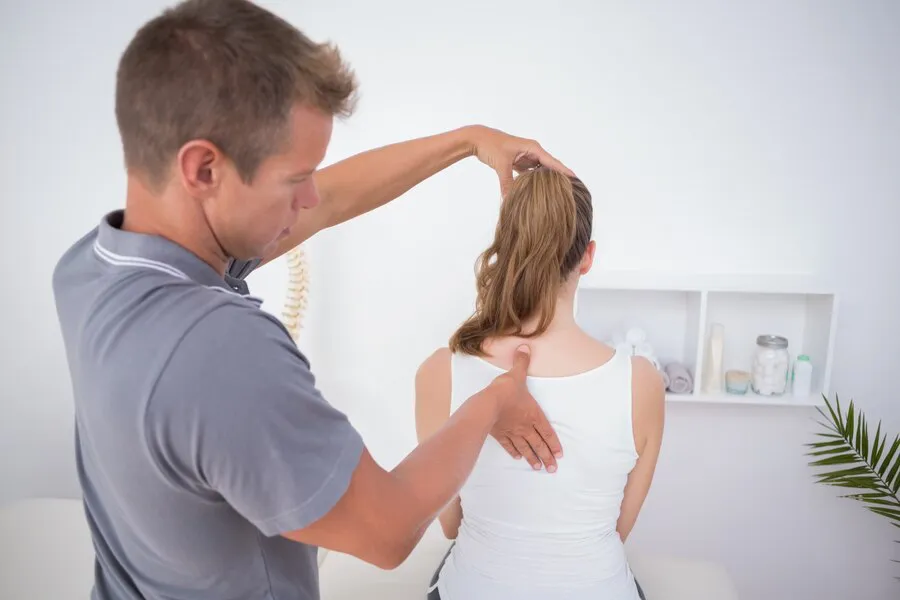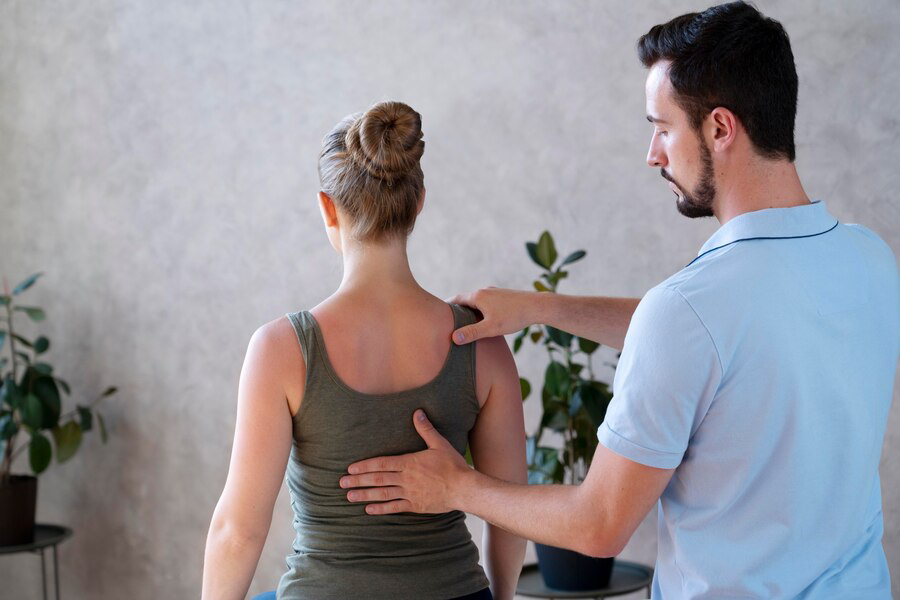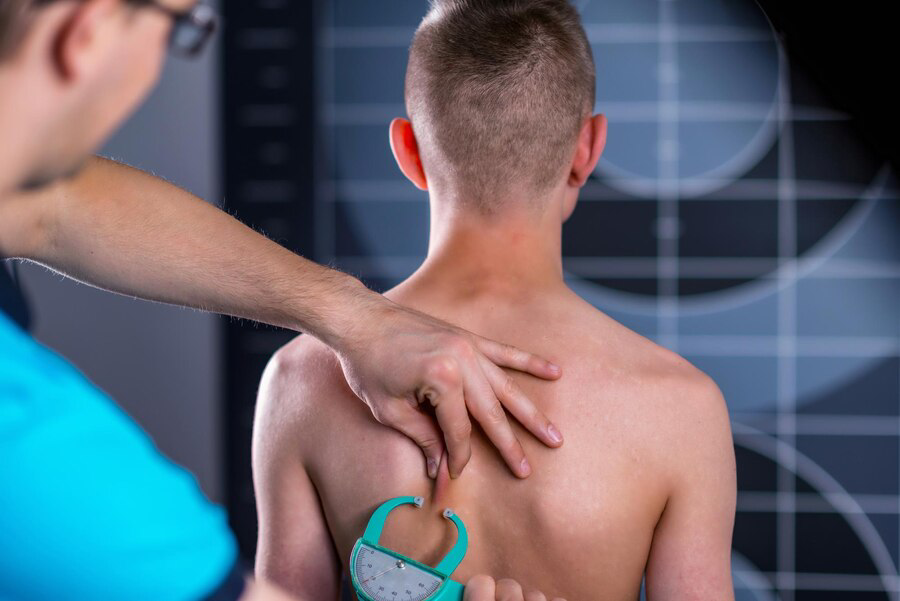In the realm of physical therapy and rehabilitation, the concept of neuromuscular re-education stands as a beacon of hope for those seeking to regain control and function over their bodies. Overland Park, nestled in the heart of Kansas, is witnessing a revolution in movement therapy with the advent of advanced techniques and practices in neuromuscular re-education. This article explores the significance of this innovative approach and its transformative impact on the lives of individuals in Overland Park.
Understanding Neuromuscular Re-education
Neuromuscular re-education is a specialized form of therapy aimed at restoring proper function to the neuromuscular system. It involves the retraining of muscles, nerves, and the brain to work together harmoniously, thereby improving movement patterns, coordination, balance, and posture. This holistic approach addresses the root cause of movement dysfunction, making it an invaluable tool in rehabilitation. Neuromuscular re-education stands as a beacon of hope for individuals navigating the intricate pathways of physical rehabilitation. At its core, this specialized form of therapy delves deep into the intricate interplay between the nervous system and muscular function, seeking to restore harmony and efficiency to this essential relationship.

The Rise of Neuromuscular Re-education in Overland Park
Overland Park has emerged as a hub for cutting-edge healthcare services, and neuromuscular re-education is no exception. With a growing awareness of its effectiveness, more individuals are turning to this therapy to address a myriad of musculoskeletal issues, including sports injuries, chronic pain, neurological conditions, and post-surgical rehabilitation. One driving force behind the rise of neuromuscular re-education in Overland Park is the growing recognition of its efficacy in addressing a wide range of musculoskeletal conditions. From sports injuries and chronic pain to neurological disorders and post-surgical rehabilitation, individuals are discovering the transformative potential of this specialized form of therapy. Unlike traditional approaches that merely mask symptoms, neuromuscular re-education targets the underlying causes of movement dysfunction, promoting long-term improvements in function and mobility.
Key Principles and Techniques
At the core of neuromuscular re-education lies the principle of neuroplasticity – the brain’s ability to adapt and reorganize neural pathways in response to new stimuli. Therapists in Overland Park employ a range of techniques to facilitate this process, including:
Proprioceptive Neuromuscular Facilitation (PNF): This technique involves stimulating proprioceptors in the muscles to improve flexibility, strength, and coordination through patterns of movement and resistance.
Therapeutic Exercise: Tailored exercise programs are designed to target specific muscle groups and movement patterns, promoting neuromuscular control and functional restoration.
Biofeedback: Advanced technology is utilized to provide real-time feedback on muscle activity, helping patients develop awareness and control over their movements.
Manual Therapy: Hands-on techniques such as soft tissue mobilization and joint manipulation are used to release tension, improve mobility, and optimize neuromuscular function.
Benefits of Neuromuscular Re-education
The benefits of neuromuscular re-education extend far beyond physical rehabilitation. By enhancing movement efficiency and restoring functional independence, individuals experience improvements in quality of life, confidence, and overall well-being. Moreover, this proactive approach to healthcare can prevent future injuries and complications, enabling individuals to lead active and fulfilling lives.
Improved Movement Efficiency:
One of the primary benefits of neuromuscular re-education is the enhancement of movement efficiency. By retraining the neuromuscular system to work in harmony, individuals experience smoother, more coordinated movements, reducing energy expenditure and minimizing strain on muscles and joints.
Enhanced Functional Performance:
Whether it’s walking, lifting, or reaching, neuromuscular re-education improves functional performance across various activities of daily living. By optimizing movement patterns and motor control, individuals regain the ability to perform tasks with greater ease, confidence, and precision.

Pain Reduction:
Neuromuscular re-education targets the underlying causes of movement dysfunction, addressing muscular imbalances, joint restrictions, and faulty movement patterns that contribute to pain and discomfort. As a result, individuals experience significant reductions in pain levels, allowing them to engage more fully in their rehabilitation and daily activities.
Increased Range of Motion:
Through targeted interventions such as stretching, mobilization, and proprioceptive exercises, neuromuscular re-education promotes improvements in joint flexibility and range of motion. By restoring optimal joint mechanics and tissue extensibility, individuals achieve greater freedom of movement and reduced stiffness, enhancing their overall mobility and function.
Enhanced Balance and Stability:
Neuromuscular re-education incorporates balance and proprioceptive exercises that challenge the body’s ability to maintain equilibrium and control movement. By stimulating proprioceptors and improving neuromuscular control, individuals enhance their balance and stability, reducing the risk of falls and injury.
Prevention of Future Injuries:
By addressing underlying movement dysfunctions and muscular imbalances, neuromuscular re-education helps prevent future injuries and complications. By strengthening weak muscles, improving joint stability, and optimizing movement patterns, individuals build resilience against potential stressors and maintain long-term musculoskeletal health.
Improved Quality of Life:
Perhaps the most profound benefit of neuromuscular re-education is its positive impact on overall quality of life. As individuals regain control over their bodies and experience improvements in function and mobility, they gain a renewed sense of independence, confidence, and empowerment. This newfound freedom allows them to fully participate in activities they enjoy, engage with their communities, and pursue their goals with vigor and enthusiasm.
In essence, neuromuscular re-education offers a holistic approach to rehabilitation that addresses the physical, emotional, and functional aspects of well-being. By promoting optimal movement patterns, reducing pain, and enhancing functional capacity, individuals experience a transformational journey towards improved health, vitality, and mobility. Whether recovering from injury, managing chronic conditions, or striving for peak performance, neuromuscular re-education holds the key to unlocking one’s full potential and embracing a life of optimal function and well-being.
Conclusion
In Overland Park, the revolution in movement therapy is underway, fueled by the principles of neuromuscular re-education. Through innovative techniques and personalized care, individuals are reclaiming control over their bodies and unlocking their full potential for movement and function. As this transformative approach continues to gain momentum, the future looks bright for those seeking to overcome physical challenges and embrace a life of vitality and mobility in Overland Park. Contact us today at Integrative Chiropractic, located at 8600 W 110th St STE 211, Overland Park, KS 66210, United States, to embark on your journey towards optimal movement and well-being.

